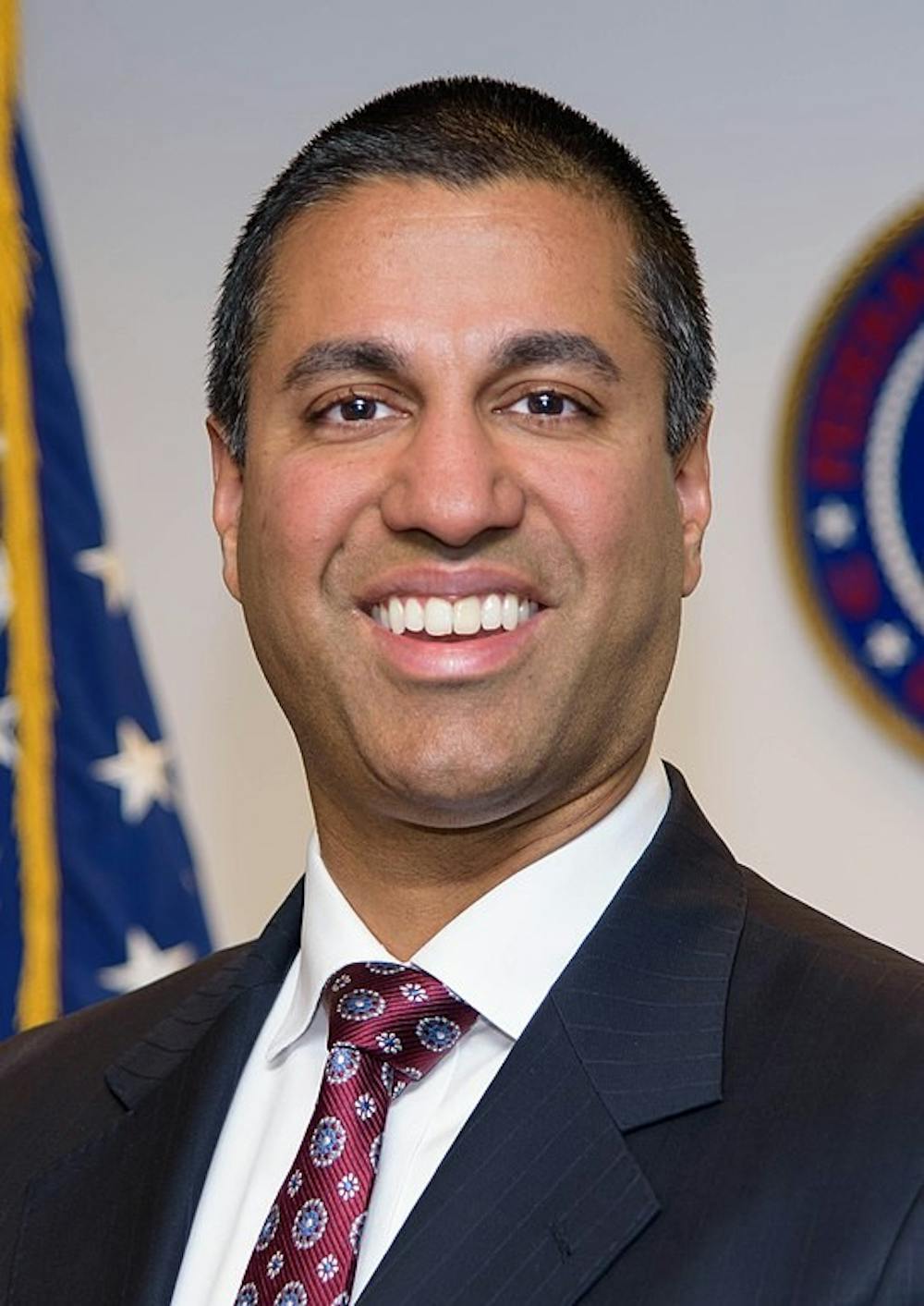In a question-and-answer session on Thursday, March 7, Federal Communications Commission (FCC) Chairman Ajit Pai argued that, contrary to media backlash, the repeals of net neutrality and other FCC initiatives have positive implications for American communications.
Pai is the Trump-appointed Chairman of the FCC, the United States federal regulatory agency for telecommunications and internet. He is a University of Chicago Law School graduate who has previously held positions as the associate general counsel of Verizon and the deputy general counsel of the FCC. He was first appointed to a Republican seat on the FCC by President Barack Obama.
During the Q&A, Pai answered questions ranging from his portrayal in popular memes to concerns about the effects of net neutrality’s repeal.
Net neutrality, known as the 2015 Open Internet Order, prevents internet service providers from throttling speeds for consumers or blocking content. Net neutrality was repealed in 2017 under the “Restoring Internet Freedom Order” order by the FCC, which Pai voted in favor of and helped draft.
Pai dispelled concerns that net neutrality’s repeal would significantly increase costs of internet services. He argued that competitive markets would keep companies in check and, in the absence of those, that “the same media publications that hate my guts” would scrutinize any company engaging in bad practice.
He also said that, after net neutrality was enacted in 2015, the FCC began looking into regulating unlimited data plans. According to Pai, in 2016, the FCC was poised to prohibit them altogether.
The repeal, he argued, was a positive change that allowed for programs like unlimited data plans to continue.
When asked how FCC regulations will interact with initiatives such as the Connect America Fund (CAF), a program to connect broadband to rural areas, Pai responded that current FCC policy will help the initiatives and companies.

Pai also dismissed fears that the repeal of net neutrality would harm the internet.
“There is no spoon here. There’s no grand conspiracy for the destruction of the internet,” Pai said. “Silicon Valley tech giants have been completely unregulated.”
As presented in the Q&A, Pai intends to create a “consistent level of regulation” among tech companies. Such regulations, he argued, would be beneficial for the communications sphere.
Pai also noted that compared to China, the United States was nearly “unequipped” on the issues of technology and regulation.

For instance, Pai cited China’s massive spending on tech research, comparing the Chinese expenditure to the American private research and university system.
Pai admitted that the Chinese system would not be applicable to the US but said that the US needed a unifying goal.
“How do we compete against that when we don’t have a sort of national mission?” he asked the audience.
Other members of the audience asked questions regarding 5G technology, which is a faster network of mobile data used on phones and other internet devices. According to Pai, 5G technology has the potential to revolutionize many applications and fields, including medicine.
He used the example of hospitals, arguing that, with 5G technology, “every patient after leaving a hospital [could] ping the hospitals with their vitals signs” and that, on a 5G network, the medical providers could use the data in real time.
Pai said that a 5G network could benefit additional fields such as precision agriculture, in which farmers can track their crops and equipment over mobile networks.
Pai also noted that uninformed consumers could use social media to learn more about technology and regulations. Pai commented that he often checks Twitter for the latest tech news.
Concluding the Q&A, Pai spoke on the ongoing investigations the Federal Trade Commission and FCC are conducting against tech giants such as Facebook. He divulged that he would prefer if Congress allowed the FCC to go further in its investigations.
The Q&A, which was titled “The Regulatory State and the Role of the FCC,” was sponsored by the Princeton Federalist Society. The event was held in Lewis Library at 5 p.m.
The story has been corrected to reflect that Ajit Pai was appointed to serve as FCC chairman under President Donald Trump. The ‘Prince’ regrets the error.








